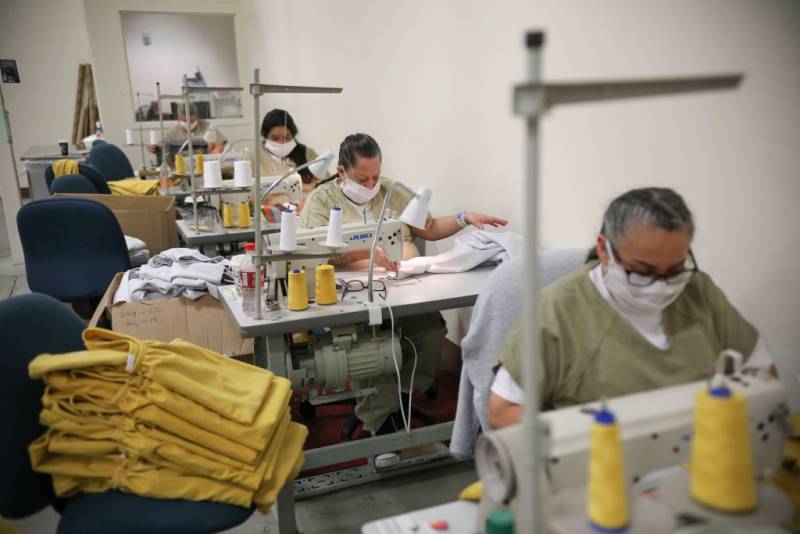California prison officials recently boosted wages for tens of thousands of incarcerated workers. Most, however, will still make less than $1 per hour, and many may not see an increase in total earnings because their hours will be cut.
Pay rates now generally range from $0.16 to $0.74 per hour, depending on skill levels, double the previous decades-old rate, according to new regulations that went into effect on April 16.
The increase is intended to incentivize incarcerated people to take jobs for their own rehabilitation, said the California Department of Corrections and Rehabilitation, which also eliminated all unpaid job assignments.
“New wages will also help workers meet restitution payments for crime victims and save more money in preparation for release,” Tessa Outhyse, a CDCR spokesperson, said in a statement. “In addition to a paycheck, work assignments build technical and social skills, instill accountability and responsibility, and prepare incarcerated people for careers after release.”
Nearly 39,000 incarcerated people have job assignments in state prisons, doing everything from construction and maintenance to custodial and food services.
